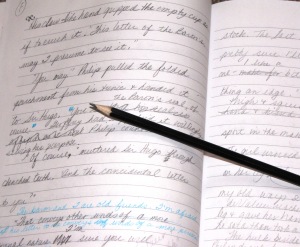I believe that creativity begets creativity. When I’m working on one creative project, I get inspiration and ideas for others. Does the same thing happen to you? It’s certainly a lovely to be in that place right now. I plan to enjoy it and wish the same for you!
I’m also happy to announce the launch of my online Writing Camp for Teens. If you are a teen writer or have a teen writer in your family, please check out what I’ve been up to here.
I’m taking the plunge and attending a writers’ critique group this evening. I only know one member, so I’m a little intimidated, but I know it’s healthy to get out and meet other writers. I’ve always been reluctant to share my work, so this will be a stretch for me. If those of you already in critique groups have any encouraging advice (or cautionary tales) please pass them along. I’m sure I’m not the only one interested in some insider information.
I hope you enjoy the new writing prompts and that you and yours have a healthy and writerly month ahead.
Use one, some, or all of the words in one of these groups to create a story or poem.
- Deck, breeze, book, cup, alone, fear
- Lake, tree, shore, run, midnight
- Table, menu, grief, pie, memory
- Message, hurry, unknown, friend, doubt
- Thunder, clouds, running shelter, lightning, breath
Use one of these opening sentences to start a story.
- I deserved better.
- Henry smelled of Old Spice and trouble.
- The audience rose to its feet.
- Saying goodbye was going to be harder than I thought
- I was afraid that my famous last words were going to be, “I should never have believed Henry.”
- Storm front coming.
- I wasn’t sure Helen would recover from this one.
Here are some titles that might inspire a story or poem: Every Monday, Run, The Last Pony, The Answer, Quotient, Formula for Murder, Always or Never, Alone in the Sky, Promises and Lies, One Heart for Yesterday.
Here are some dialogue excerpts. See what scenes you can create from them.
- I haven’t seen Henry for ages.
- He was around yesterday. Maybe, he doesn’t want to see you.
- Did you like the movie?
- Uh huh.
- That’s all you have to say?
- Didn’t you notice who was sitting in front of us?
- I thought we were done here.
- You might be, but I’m not.
- Did you hear what Helen said?
- Yes.
- Did it sound like a threat to you?
- Yes.
- I’ve had enough. Let’s go.
- Who put you in charge?
- Okay fine. You can stay, but I’m leaving now.






